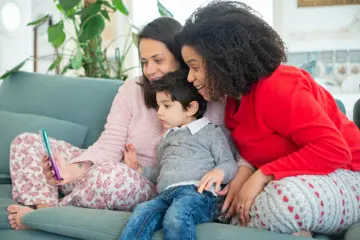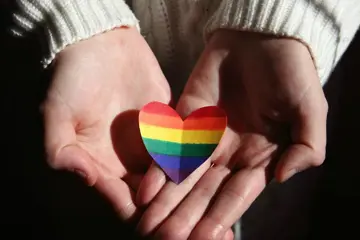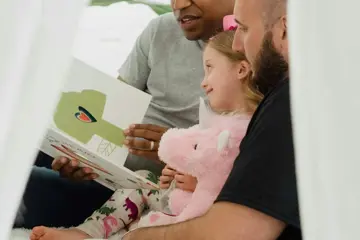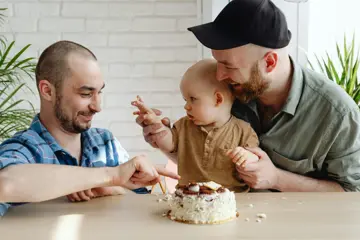If you are lesbian, gay, bi or trans, you may be wondering if you can foster. The answer to that question is a resounding "Yes!" (subject to all the usual checks and assessment process). Fostering agencies will be keen to hear from you if you identify as part of the LGBTQ+ community, whether that's because of your sexual orientation, gender identity or both. There are many examples of children thriving under the care of LGBTQ+ foster carers, and fostering services should positively welcome your application.

Your rights
All fostering services should be committed to the equal treatment of all prospective foster carers, and have a responsibility to treat all applicants with respect. They must assess, train, support and place children with you fairly, using the same criteria as for all other applicants and approved foster carers.
Your fostering service must make sure that other professionals, families of children in foster care, and children themselves, do not discriminate against you because of your gender or sexual orientation.

Assessment of prospective foster carers
An ideal foster carer is one who has the space and capacity to care for a child or children. It doesn’t matter whether they are single or part of a couple, and their sexual orientation and gender are irrelevant to an application to foster.
All prospective foster carers are subject to the same checks, questions and assessment process, including questions about their relationships. This is because children entering foster care have often experiences periods of sudden changes, so it's important that foster carers are able to provide stability. For this reason, any applicant in a new relationship may be advised to wait a while before applying.

The process of assessment can feel intrusive but strict privacy and data protection rules will apply. Applicants can ask fostering services to confirm how any information is recorded, shared and stored, if there are any concerns about this. The assessment is a robust process, but all applicants should be treated fairly and respectfully by fostering services. If you feel you have not been treated in this way, you can make a complaint using the fostering service's complaints procedure, and/or contact Fosterline for advice.

The matching process
Where possible, fostering services will try to 'match' children with foster carers who can best meet their needs. Sexual orientation is not a relevant factor for matching foster carers and children, but gender may be, as there may be some circumstances where it is more appropriate for a child to be placed with just men or just women, or where a mixed gender couple is more appropriate, depending on the needs of the child.

When drawing up a placement plan - a plan that sets out how a child’s needs will be met while living with foster carers - the child’s views, wishes and feelings should be taken into account. It may be appropriate to discuss a foster carer’s sexual orientation as part of this, although foster carers should not be discriminated against because of their sexual orientation. All foster carers will also have a safer care plan in place that should be reviewed regularly, to help ensure the success of the fostering arrangement.

Further support
- Find out what support your fostering service offers. Some fostering services provide foster carer support groups, or peer support, for LGBTQ+ foster carers.
- For more information on LGBTQ+ fostering and adoption, visit New Family Social (external site).


